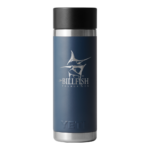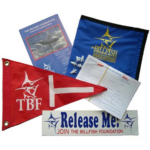This past November, TBF staff members attended the 66th Annual Gulf and Caribbean Fisheries Institute (GCFI) conference hosted by the Harte Institute for Gulf of Mexico Studies of Texas A&M University. More than 400 scientists, marine managers, fishermen, students, and NGOs from 35 countries came to Corpus Christi, Texas to share their work and exchange information on the management of marine resources.
Topics of interest to TBF included fisheries governance and recreational fisheries in the Caribbean which involved interesting research on artisanal fishing as well as the management of fish aggregations devices (FADs), issues which are of growing importance internationally. With marine protected areas (MPAs) threatening to lock out anglers from fishing grounds in places like Australia and most recently Bermuda, new research on MPAs was another important topic for TBF. Exciting research was also presented on dolphinfish (mahi-mahi), yellowfin tuna, and flyingfish, all of which are important prey for billfish.
This year’s GCFI award winners.
TBF also participated in the conference by presenting some of its own research. Science and Policy Associate, Michael Kelly and TBF intern, Kristina Trotta both presented their findings from projects which focus on the Caribbean. Trotta presented results from research that compliments previous work conducted by TBF in the northern Caribbean for the Caribbean Regional Fisheries Mechanism. Similar methods used for prior research conducted in Puerto Rico and USVI were utilized by TBF to gauge the level of sportfishing in Colombia as well as the motivating factors and potential economic growth of sportfishing in the country. As part of a Caribbean wide campaign, ongoing research being conducted by TBF in the Caribbean was also presented by Michael Kelly. This work focuses on working with stakeholders and officials in the Caribbean to assess the existing levels of sportfishing in the region, the capacity to expand sportfishing and highlight the potential for Caribbean nations to capture the many benefits of sportfishing. The intent of this research is to help influence policies in the Caribbean toward conserving gamefish and promote sportfishing in the region. Ideally, this work will show that that sportfishing offers a much more sustainable means of benefitting from marine resources instead of practices such as longlining or selling fishing rights to foreign nations.
Keep an eye out for more on TBF’s work in the Caribbean and the results of the research in Colombia in TBF’s ‘News’ section or contact one of the TBF staff members for more information. Learn more about TBF’s work in our Research section.







